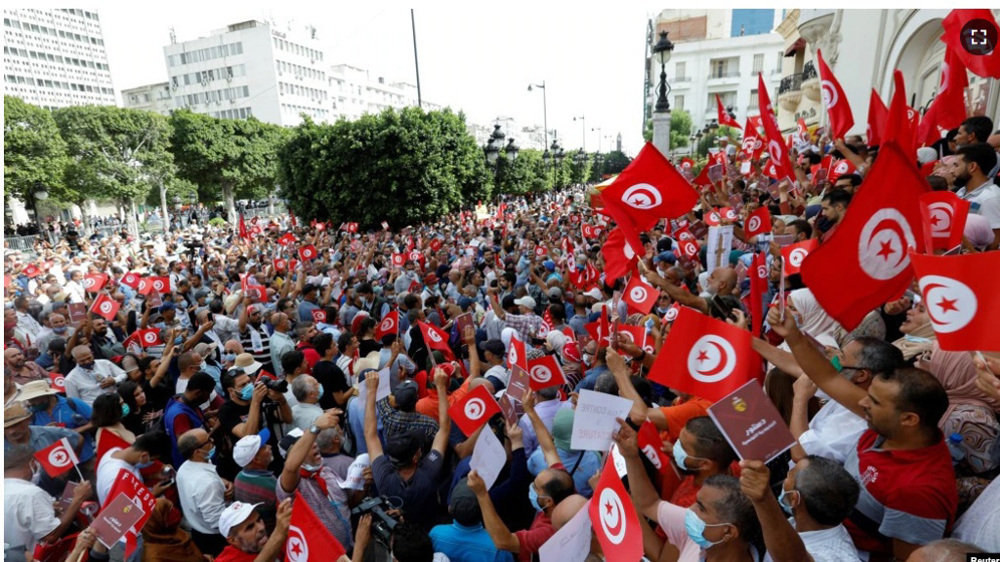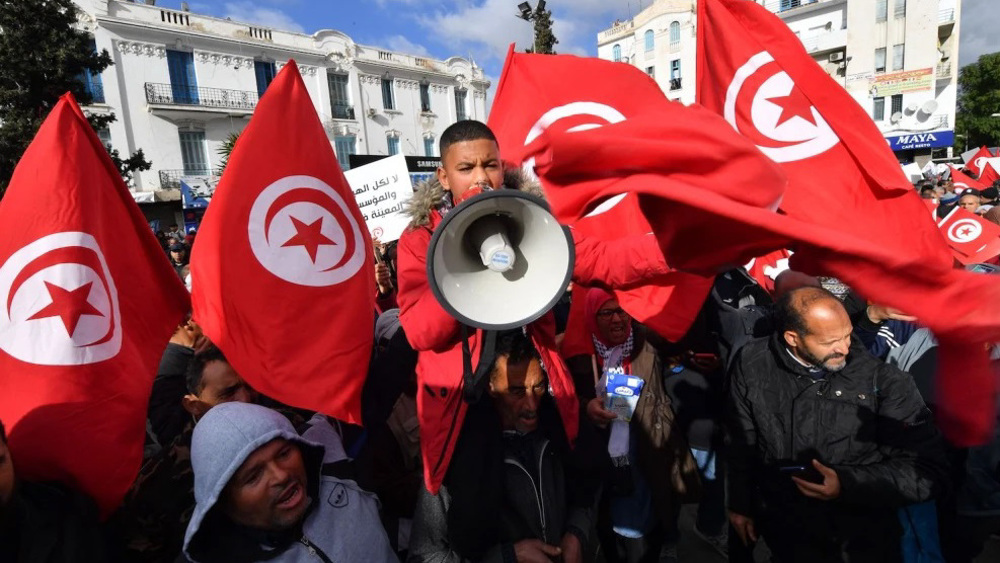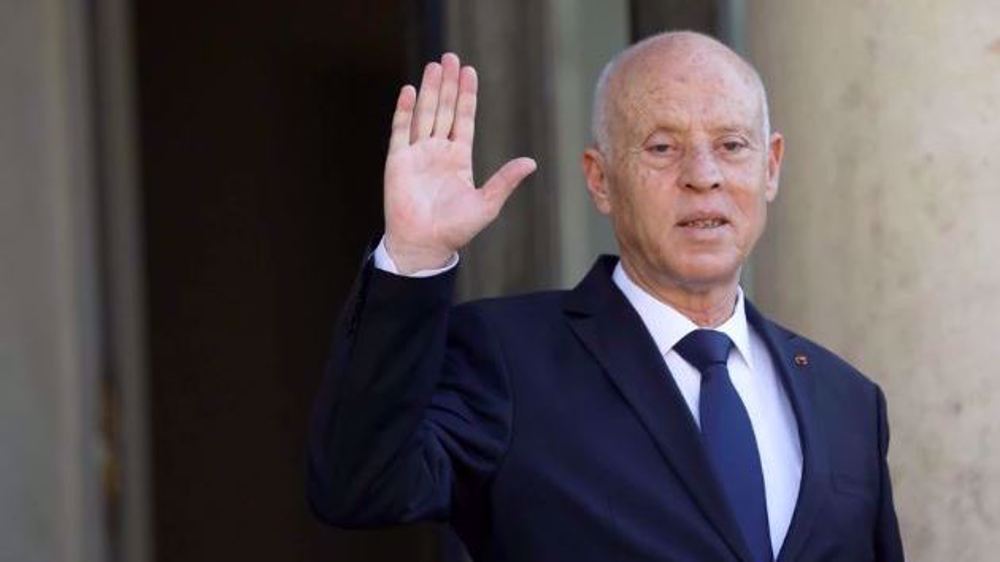Refugees flee Tunisia after president's call for crackdown
Foreigners in Tunisia have been fleeing out of the Arab country after president Kais Saied made controversial "racist" remarks, claiming "a criminal plot" was underway to flood the country with blacks.
"145 people are leaving this morning after having spent the night in hotels," Jean Badel Gnabli, head of an association of Ivorian migrants in Tunisia, told AFP on Saturday. "They feel like they've been handed over to mob justice."
In a February 21 speech, Kais Saied appealed to officials nationwide to take "urgent measures" to tackle irregular migration, claiming that the enemies of the country wanted "to change Tunisia's demographic makeup".
He accused sub-Saharan migrants of being behind most of the crimes committed in the North African country.
The Tunisian president's remarks fueled a spate of sackings, evictions, and physical attacks against the black migrant community in Tunisia.
The African Union expressed "deep shock and concern at the form and substance" of Saied's racist remarks.
In the meantime, governments in sub-Saharan countries have launched campaigns to repatriate of hundreds of fearful nationals who flocked to their embassies for help.
Hundreds of West African migrants from Guinea, Mali, and the Ivory Coast have already left to avoid violent attacks against them by mobs.
Ivory Coast’s ambassador Ibrahim Sy Savane said a total of 1,100 Ivorians have applied to be repatriated from Tunisia.
According to official figures, there are around 21,000 illegal African migrants in Tunisia.
The population of the country is about 12 million inhabitants.
In the meantime, thousands of Tunisians took to the streets on Saturday to protest against what they see as Saied's power grab and crackdown on political opponents.
There have been numerous mass protests against Saied since he assumed power in 2019.
Since then, Saied has sacked the government and dissolved the parliament -- known as the Assembly of the Representatives of the People -- while expanding his own powers. Later by decree, he also seized control of the judiciary, in what rivals saw as further blows to democracy in the birthplace of the 2011 popular uprisings.
However, the Tunisian law professor-turned-president insists that all of the measures taken by his government to gain power were meant to safeguard the nation and stop enemies from plunging the country into a civil war.
D-8’s role in Iran’s economy after Cairo summit
China slams US as ‘war-addicted’ threat to global security
China ‘firmly opposes’ US military aid to Taiwan
VIDEO | Press TV's News Headlines
President Yoon Suk Yeol to be removed from office
At least 19 Gazans killed by Israeli airstrikes since dawn: Medics
Leader: Iran neither has nor needs proxy forces
US fighter aircraft shot down ‘in friendly fire’ amid aggression on Yemen












 This makes it easy to access the Press TV website
This makes it easy to access the Press TV website